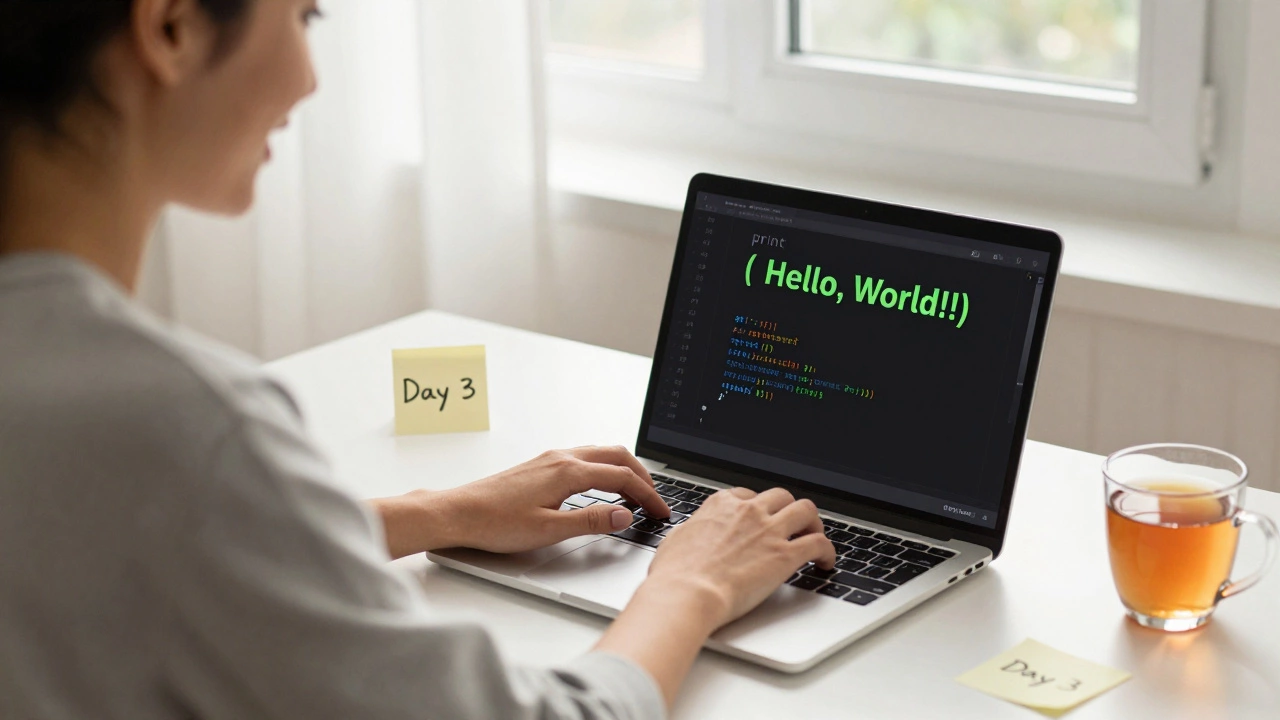Coding for Beginners: Your Quick‑Start Guide
If you’ve ever wondered how to turn those vague ‘I want to code’ thoughts into real skills, you’re in the right place. You don’t need a computer science degree or a mountain of money—just a clear plan and the right resources.
Step 1: Pick a Language That Matches Your Goal
Most beginners start with Python because its syntax reads like plain English. Want to build websites? HTML, CSS and JavaScript are the trio you need. If you’re eyeing mobile apps, give Kotlin or Swift a look. Choose one language, stick with it for a few weeks, and you’ll see progress faster than hopping between many.
Step 2: Use Free, Structured Courses
There are dozens of trustworthy free courses. For Python, try the "Learn Python" roadmap on our site or the “FreeCodeCamp” Python track. JavaScript learners can follow the "JavaScript Basics" series we have. These courses break topics into bite‑size lessons, give you instant quizzes, and end with a mini project—exactly what you need to keep the momentum.
Our most‑read posts for beginners include:
- Can You Learn Coding for Free? 2025 Roadmap, Best Free Courses, and FAQs
- How to Teach Yourself Coding: Step‑by‑Step Guide for Beginners
- Is Coding Hard to Learn? A Real Look at How Anyone Can Start Coding Today
- Why People Fail to Learn Coding: The Real Reasons You Didn't Expect
Each article walks you through common roadblocks and shows exactly how to avoid them.
Pro tip: Schedule 30‑minute coding sessions daily. Consistency beats marathon sessions that end in burnout.
Step 3: Build Tiny Projects Right Away
Learning theory is fine, but you’ll cement knowledge only when you apply it. Start with a simple calculator, a to‑do list, or a personal blog page. When you finish, you get a tangible result to show off and a confidence boost.
Need ideas? Try these:
- Python: A command‑line dice roller.
- JavaScript: A color‑changing background button.
- HTML/CSS: A personal portfolio page.
Share your project on GitHub; even a private repo helps you track progress and practice version control.
Step 4: Join a Community
Programming feels less lonely when you have people to ask questions. Communities like our forum, Reddit’s r/learnprogramming, or Discord coding rooms are great places to post bugs, get feedback, and stay motivated.
When you see others solving similar problems, you’ll pick up shortcuts and best practices you’d miss on your own.
Step 5: Keep a Learning Log
Write down what you learned after each session. Note down errors, how you fixed them, and any new concepts. Over time you’ll spot patterns, see how far you’ve come, and know exactly where to focus next.
Remember, coding isn’t a race. It’s a puzzle that gets easier the more pieces you connect. Follow these steps, use the free resources we recommend, and you’ll be writing functional code faster than you imagined.
Ready to start? Pick your language, open a free course, and write your first line of code right now. Happy coding!
Best Coding Language for Beginners in 2026
Python is the best coding language for beginners in 2026 because it’s simple, powerful, and widely used. Learn how to start coding today with zero experience and build real projects fast.
Can I Learn Coding Online for Free? Your Practical 2025 Roadmap
Yes, you can learn coding online for free. Here’s a focused 2025 roadmap: best platforms, a step-by-step plan, projects, credentials, pitfalls to avoid, and FAQs.

